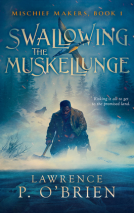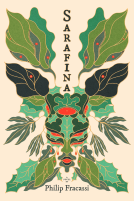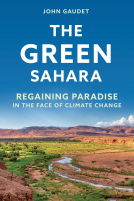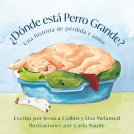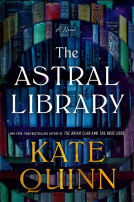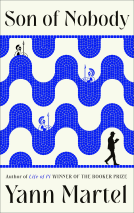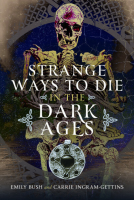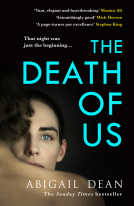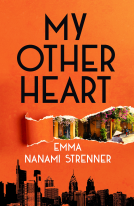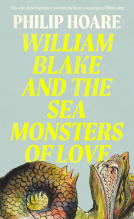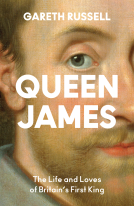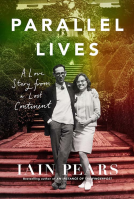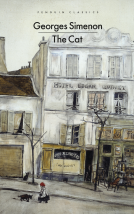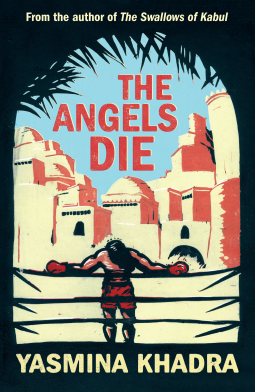
The Angels Die
by Yasmina Khadra
This title was previously available on NetGalley and is now archived.
Send NetGalley books directly to your Kindle or Kindle app
1
To read on a Kindle or Kindle app, please add kindle@netgalley.com as an approved email address to receive files in your Amazon account. Click here for step-by-step instructions.
2
Also find your Kindle email address within your Amazon account, and enter it here.
Pub Date 2 Aug 2016 | Archive Date 15 Sep 2016
Description
Award winning author Yasmina Khadra gives us a stunning panorama of life in Algeria between the two world wars.
'A writer who can understand man wherever he is' The New York Times
Even as a child living hand-to-mouth in a ghetto, Turambo dreamt of a better future. So when his family find a decent home in the city of Oran anything seems possible. But colonial Algeria is no place to be ambitious for those of Arab-Berber ethnicity. Through a succession of menial jobs, the constants for Turambo are his rage at the injustice surrounding him, and a reliable left hook. This last opens the door to a boxing apprenticeship, which will ultimately offer Turambo a choice: to take his chance at sporting greatness or choose a simpler life beside the woman he loves.
A Note From the Publisher
$15.95 USD
Advance Praise
'World-class' – Rosie Goldsmith, The Independent
'A skilled storyteller working at the height of his powers.' – Times Literary Supplement
'World-class' – Rosie Goldsmith, The Independent
'A skilled storyteller working at the height of his powers.' – Times Literary Supplement
Available Editions
| EDITION | Other Format |
| ISBN | 9781908313911 |
| PRICE | $14.95 (USD) |
Average rating from 25 members
Featured Reviews
 Maria Grazia B, Book Trade Professional
Maria Grazia B, Book Trade Professional
Turambo. Non a name, but a nickname. The Arab mispronunciation of the French name of the village where he was born, not to forget where he comes from. Because an Arab child, in Algeria dominated by the French, has no other way to reclaim his roots. And Turambo, about to be guillotined, tells his sad but epic story, from street kid to a boxing champion, but never a human being, never a real human being, because an Arab is not a human being, he is a dog, a monkey, an object. All are more important than him. He gets in the ring a hail of blows, but others enjoy his victories and command him, to the point where even the friendship, the only Turambo's friendship, disappears buried in selfishness and business. And so Turambo, who just tries to be a man among men, and believes boxing is just a way to earn a living, after that together friendship has been taken away the love of his life, will fall in the same hell where prejudices wanted to get him down from the beginning of his life.
The book is beautiful, and as always Yasmina Khadra's writing, in the remarkable American translation by Howard Curtis, is fascinating. Telling the story of Turambo makes us take an unforgettable journey into the hell of racism and colonialism, reminding us at the same time that those who today we would like they were at their own home are the same that we have deprived of home, and that we claim that they do not touch our women because we have handled their as whores. Only the end of the book is not convincing. The old Turambo, that a miracle has saved from the guillotine, becomes an introvert moralist who, like many older who have survived themselves, no longer has anything really compelling to say.
Thank Gallic Books and Netgalley for giving me a free copy in exchange for an honest review.
This is the saddest book of Zasmina Khadra I read so far and it's not the first. The story of Turambo, poor kid who became the boxing Idol of North Africa but as fast as he gets to the Olympus of the sport, he fell and ends up in the death row of a prison where he starts to tell us his story. It was too long and sad in my opinion, but I learned a lot about that period of time.
In assoluto il libro piú triste di Yasmina Khadra e non ne ho letti pochi. La storia di Turambo, bambino povero che diventa pugile idolo delle fosse e campione del nord Africa, ma con la stessa velocitá con cui ottiene gli allori, precipita in prigione ad aspettare la pena di morte, ed é proprio dalla cella che comincia a raccontarci la sua storia. Libro troppo triste e lungo per i miei gusti, ma ho imparato parecchio su quel periodo di tempo.
THANKS TO NETGALLEY AND GALLIC BOOKS FOR THE PREVIEW!
'My name is Turambo and they'll be coming for me at dawn': so opens this first-person narrative of racism, oppression and pure ill luck. Make no mistakes, there are few bright or high points in this story set in Algeria. I expected it to be more overtly about the throwing off of colonial shackles but Turambo is in prison during most of the war for independence - though we still see him via a colonial gaze.
I don't tend to like the first-person narrative told from old age looking back on a life already lived since it too often lacks dynamism - after all, everything has already happened. Here that sense of detachment is exacerbated by some frankly melodramatic action at the climax that left me cold.
So a story of the underdog full of bad luck, poverty, betrayal and violence.
To be posted on Amazon and Goodreads
 E V, Reviewer
E V, Reviewer
The Angels Die is the story of Turambo who escapes the extreme poverty of an Algerian ghetto to become a successful boxer. A philosophical chap, he struggles with doing the right thing, living a life that doesn’t embarrass his Arab family, and dealing with the prejudice of others. He knows love and friendship, murder and rage. Khadra’s writing is perfection. This book held my interest and kept me guessing—I had no idea what Turambo was going to experience next. I heartily recommend this brilliant story.
 Ellen A, Educator
Ellen A, Educator
Turambo is so poor he isn't even known by his own name-Turambo is the name of the desperately poor village in which he was raised, only to leave when it is destroyed for a larger, more dangerous impoverished town.
The Angels Die (by Yasmina Khadra, who also wrote The Swallows of Kabul) begins with Turambo in a prison, facing execution. We aren't told anything about the crime; we are presented with his desperate voice, trying to understand how he came to this point in his young life.
The narrative abruptly cuts to his early years. Along with extreme poverty, Turambo also faces constant discrimination because he is an Arab in Algeria in the 1930s. I had no idea of the situation in Algeria at that time and the book was, to say the least, eye-opening. I was engrossed in following Turambo's struggles growing up and trying to create some kind of life for himself in a time and place where that seems to be an impossible task.
The Angels Die is a fascinating, well-written story. I was completely caught up in following Turambo's life. All of the characters-Turambo's family, friends, and the other people living in this almost nightmare-like world-are strongly created and believable, especially as seen through Turambo's perspective. I desperately wanted (despite the opening scene) to see Turambo escape the world in which he seems trapped. But even when he seems to have a chance, the view from his perspective is bleak.
I strongly recommend this gritty story depicting life in a different time and place but still (sadly) relevant in some ways to our world today.
Many thanks to NetGalley, Gallic Books, and Yasmina Khadra who provided me with the opportunity to read this excellent work in exchange for an honest review.
 Tonstant W, Reviewer
Tonstant W, Reviewer
The Angels Die opens with Turambo, the narrator and hero of our story, preparing for his execution by guillotine. It is written by Yasmin Khadra, who has written more than twenty novels. This is the story of Turambo’s rise and fall, from absolute poverty to fame and fortune to the guillotine. Well, that’s the storyline. It’s really about the destructive power of poverty, oppression and racism.
The Angels Die is organized in three parts, each centered on a different woman with whom he falls in love. The first is his cousin Nora, the second a prostitute named Aida and the last, Irene, the first woman who actually loves him back. Turambo, like many men, seems to think that if he loves a woman, they must love him and will fall gratefully in his arms the moment he tells them of his great love. He is repeatedly surprised.
“Dreams are a poor man’s guardian, and his destruction.
They take us by the hand, walks us through a thousand promises,
then leave us whenever they want.”
Turambo and his family were displaced by a massive flood that destroyed his village. It was probably the Mostaganem flood of 1927 which killed more than two thousand Algerians. His name is not really Turambo, it’s a nickname that comes from the name of his village that has been buried in silt. There is an irony in this name, but to tell you would be a spoiler. Not that it spoils the plot, but that moment of realization is quite poignant and should not be taken away from the reader. He is an Algerian Arab whose country was under French colonial rule. It takes his family most of his childhood to climb out of absolute destitution to respectable poverty.
“I had no way of knowing that when charitable people intervene to save your skin, they don’t necessarily plan to leave any of it on your back.”
Turambo has a talent for making good friends, but not much else. He loses the jobs he gets and is often fired for losing his temper. He has a strong left hook which eventually brings him to the attention of a boxing trainer and promoter and sure enough, that is the one sphere in which he can succeed. However, during his struggle to boxing success, he is repeatedly confronted by anti-Arab racism. While it angers him, he never seems to connect it to something larger than himself.
“The sea is a font where all the prayers that don’t reach the Lord fall as tears.”
Turambo is an angry man, with good reason. The world is unjust and he and his people are oppressed and insulted daily. The racism is flagrant and cruel. As Khadra put it, his “people could still cling to the flotsam, but they weren’t allowed on board the ship.” Still, his anger seems more generalized, more a character flaw than a righteous anger inspired by injustice.
Turambo is illiterate and uneducated, so it’s no surprise that he does not connect his struggle to the larger struggle of his people. Khadra uses the device of an encounter with someone from the Association of Muslim Students to draw attention to the political context, but Turambo has never heard of them.
“I have a feeling that we never die completely until we have consumed all our memories,
that death is the ultimate forgetting.”
Khadra is a painstaking prose stylist. He writes sentences that beg to be carefully lettered and illuminated on parchment, framed and placed on the wall. Characters offer short soliloquies on the meaning of life that seem crafted more for critical discussion in a classroom than something a living, breathing person would say. There is this disconnect between the narrator’s actual life experience and the words that come from his mouth. We have this unlettered, uneducated boxer who speaks as though he has a graduate degree in literature.
Do you know why we no longer embody anything but our old demons?
It is because the angels have died of our wounds.
So yes, the prose is beautiful, the story is interesting and informative and provides insight into colonial Algeria and the experience of people living under the boot of French oppression. I should loved it, I expected to love it, but I did not.
I did not like Turambo. He seemed incapable of true empathy. He was often flat out thick as a post, as in the deal he made with someone to find him jobs in exchange for half his earnings. And yes, intellectually, I know that Khadra is deliberately making an unlikable protagonist to push us into thinking more clearly about how oppression brutalizes humanity. Still, I feel a visceral dislike of the character, not so much for his anger at the outside world, but for his attitude toward the women he thinks he loves.
Three times he fell in love and three times he expected the women to be grateful and reciprocate. Three times the women asserted their independence and agency and yet, he never really got it. Even when he does come to recognize what Irene was telling him about boxing, he still does not recognize that other people outside himself have motivations, needs and demands that do not center on him.
Khadra has a lot to say about racism, colonialism, women in Islam and how we make our way in the world. I will make a point of reading another of his books, perhaps The Swallows of Kabul, which sounds fascinating, though again with an unlikable protagonist.
Once again I was presented with a very good book from Netgalley and from an author with a nationality that I hadn’t come across yet. The Angels Die had a very strong story and intertwines the story of a country boy, Turambo, with the country’s (Algeria) history. In Turambo’s struggles to grow up, be a man, get accepted in society and strive in love you can see Algeria’s own convolutions to deal with its inhabitants from all ethnicities and backgrounds.
I spent the entire book looking for the silver lining, the happy ending, the “lived happily ever after” but life is not always like we want it to be.
Recommended to everyone who likes a good strong narrative from improbable places and wishes to expand horizons.
 Nadia A, Reviewer
Nadia A, Reviewer
Gritty, raw, and sad. This book gave me all the feels and I loved it!
 Douglas O, Reviewer
Douglas O, Reviewer
I wasn't sure what to expect from this book but was soon engrossed in the story. It is written sensitively and with deep insights into life in Algeria during the wars. It's hero is about yo be executed at the opening then the reader is taken through the life story that got him to that point. It is hard not to share his frustration and his outrage at the denigration dealt out to him and his fellow Arabs. This book offers important messages as well as a compelling story.
This book is about a man from Algeria who is looking for love and it ends up as a tragedy. The book is divided into three parts, each part is having one woman who features a prominent role. It is an engrossing story that shows a bit about Algeria including how they feel about Arabs.
 Rebekah L, Reviewer
Rebekah L, Reviewer
The Angels Die tells the story of Turambo, an Algerian peasant named after the village of his birth that was swept away by a storm.
The novel opens with the threat of Turambo’s execution. What has he done? What has brought him to this point? Turambo tells us.
His story is an interesting and compelling one that roams through poverty, racism and colonialism, religion, romance and naivety. Somehow Turambo never takes the turn you expect, his life following twists that defy a journey into heroism – as he becomes a boxer, the nation’s champion no less, you could argue that the story ducks and weaves in a fight full of drama and unexpected recoveries.
Whilst this failure to play the hero should avoid sentimentalism, especially as the novel boldly faces prejudice, somehow it doesn’t. The message from Turambo’s story seems to be that what matters in life is not money or fame but the people you have around you, your family. And though money may buy you a certain privilege, your social standing doesn’t really change – Turambo will always be considered a stupid dirty Arab.
Though this message rings true, there were parts of Turambo’s life that passed too quickly to allow a reader to see his journey from romanticism to home grown philosopher. And when we return to Turambo’s execution the plot twists again and years pass in paragraphs offering a wisdom that still feels unearned to me.
The descriptions of Algeria and of the politics are fascinating, and the reader gleans more than Turambo himself, but ultimately I wasn’t moved by this story though I’m sure many will be.
In The Angels Die Khadra paints a picture of a bygone Algeria lost in the dust of colonial memory. If you love romance with political undertones, this is probably the novel for you.
The Angels Die is set in Algeria between the two world wars. It tells the story of Turambo, a young, poor Arab boy who grows up to be a promising boxer. It is narrated by Turambo and begins when he is in prison, awaiting execution.
Turambo grows up with his mother, uncle and his family. His own father is absent after he went to fight in World War One. The early part of the book is a series of increasingly bleak vignettes showing the poverty and cruelty that Turambo experiences in the slums. It was hard to stay focused without a narrative but the story begins to flow as Turambo reaches adolescence, when he and his friend Sid Roho run away to the city of Oran.
Life in Oran remains tough but Turambo at least sees possibilities, that life can be different from the slums. He forms a significant friendship with a boy called Gino. In the city he experiences different cultures – and prejudices. He meets Europeans (‘Roumis’) of various nationalities, experiences racism against Arabs and sees the ambiguous status of Gino, who is of Italian descent but Jewish.
Turambo takes a number of menial jobs but his temper gets him into trouble. His refusal to accept low-paid work and humiliation and his willingness to stand and fight win him the chance to train as a boxer. Life opens up for him but he faces new challenges and ultimately finds himself in prison.
Turambo kicks against the limited opportunities offered to him, and this is one of the key themes of the book. You can admire his spirit, for insisting on making choices where it appears that none exist, or you can see his behaviour as self-destructive. Neither the risk takers like Sid Roho, nor conformists like Turambo’s uncle, find peace and security. Perhaps Turambo’s nature means he couldn’t behave differently, but even if he could there are no success stories in his life for him to emulate.
The Angels Die asks profound questions about choice and fate, about the subtle and overt ways people are constrained, and about why some submit and some fight.
Readers who liked this book also liked:
Jessica Collins; Lisa Melamed
Children's Fiction, Español, Parenting, Families, Relationships
Philip Hoare
Arts & Photography, Biographies & Memoirs, Nonfiction (Adult)
